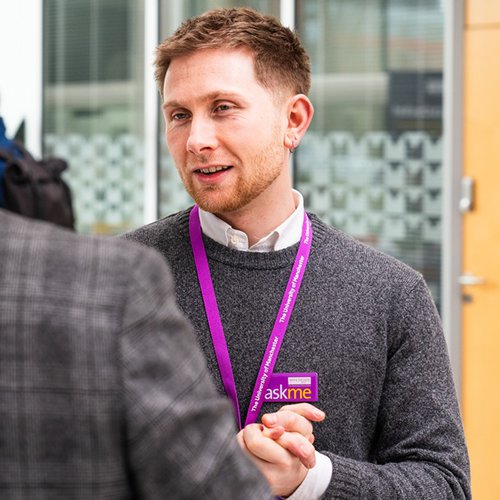
Dr. James Bird
What is the ERN project all about?
At its heart, the Electronic Research Notebook (ERN) project is about making research smoother, smarter, and more sustainable. We’re introducing at least one ERN platform to support both researchers and the teams who help make research happen. But it’s not just about the tool—it’s about building a service around it that helps people get the most out of it.
Think of an ERN as a note-taking app—but better. It helps you keep track of your research data, but more importantly, it adds valuable context (metadata) that makes your data easier to understand, share, and reuse.
Why build an ERN community?
We’re not just rolling out a tool—we’re building a community. Here’s why:
- To make better decisions. We want your input to shape the ERN service. If you’re involved in the process, you should be able to see how your feedback influenced the outcome.
- To keep the service going strong. A community of enthusiastic users helps show that this service matters, which in turn helps secure long-term support and investment.
- To support each other. No one should feel stuck or isolated. A strong community means there’s always someone to turn to for help, ideas, or inspiration.
So, what’s your role in all this?
Officially, I’m a Technical Specialist. Unofficially? I wear a lot of hats—project manager, business analyst, open research advocate, data steward (maybe?), and even researcher. It’s a bit of a juggling act, but I love it.
What led you to this role?
I started out as a PhD student in the Materials department here at Manchester. I used an ERN in combination with Figshare during my research to help make my data more FAIR (Findable, Accessible, Interoperable, and Reusable). I even gave a few talks about my workflow, and that’s how I got noticed for this role. I’ve always been an advocate for research data management—it’s the backbone of good science.
What do you like about ERNs? Why do they matter?
They support the research data lifecycle; ERNs can transform how we do research, by acting as the central hub of the research data lifecycle. They help us attach meaningful metadata to our work by bringing together data from the earlier stages of a project, such as planning and analysis. This enriched context not only supports better data management during the active research phase, but also lays the foundation more effective preservation, sharing and reuse in the latter stages.
They enhance collaboration; by providing a shared, structured space where research teams can document, access, and build on each other’s work. Instead of relying on scattered files and email threads, collaborators can work within a single, version-controlled environment that captures not just data, but the context and decisions behind it. This transparency fosters better communication and ensures that everyone—from lab partners to cross-institutional teams—is aligned and informed throughout the research process.
They could improve the research process at the University of Manchester; by providing a platform that facilitates seamless data sharing, ERNs can foster a more open and collaborative research culture—aligning closely with our commitment to social responsibility. Better note-taking and documentation practices can accelerate research impact by enhancing reproducibility. This, in turn, helps reduce the unnecessary expenditure of time, resources, and materials on repeating previously conducted studies.
What do you hope the ERN community will achieve in the next year?
I’d love to see a vibrant, engaged community that helps shape the ERN service from the ground up. I want people to feel ownership over the tools they use and to feel confident helping others get started. And personally, I hope to learn from the community too—what works, what doesn’t, and what we can do better together.
How can people get involved?
There are loads of ERN tools out there—none of them perfect, all of them different. That’s why your input is so important. We need your help to choose the right one for our community, based on real needs and real experiences.
Whether you’re a seasoned researcher or just starting out, your voice matters. Join the conversation, test the tools, share your feedback, and help shape the future of research at the University and beyond.
What do you enjoy most about your role?
I love the variety. One day I’m deep in technical planning & data analysis, the next I’m chatting with researchers about their workflows. It’s rewarding to be part of something that can genuinely improve how we do research at Manchester and other research institutions. A group of academic colleagues and I recently secured funding from UKRI’s Metascience Unit to help share the research outputs from our ERN implementation more widely, extending the impact beyond our own university.
Fun fact?
Je parle français.
To join the ERN community visit the Computation and Data in Research Teams site.

